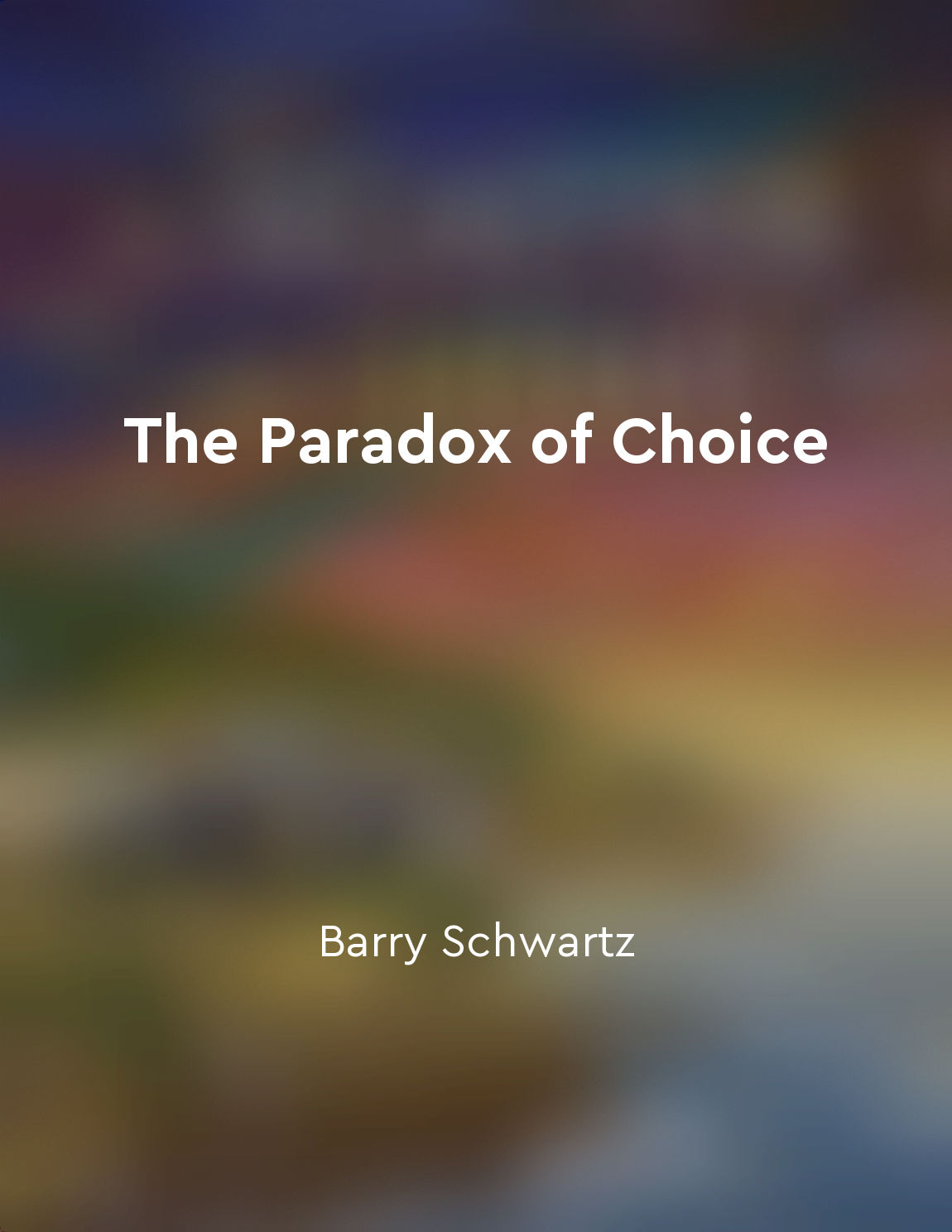People often struggle with making decisions when there are too many options from "summary" of The Paradox of Choice by Barry Schwartz
In an era of abundance and variety, we are constantly bombarded with an overwhelming number of choices in virtually every aspect of our lives. While many believe that more options lead to greater satisfaction and freedom, the reality is quite the opposite. The abundance of choice often leads to decision-making paralysis, anxiety, and dissatisfaction. When faced with an extensive array of options, people tend to become overwhelmed and find it challenging to make a decision. The phenomenon of decision paralysis can be attributed to several factors. Firstly, the sheer number of choices available can be daunting and exhausting, leading to cognitive overload. Additionally, the fear of making the wrong decision can paralyze individuals, causing them to procrastinate or avoid making a choice altogether. Moreover, the comparison between numerous options can amplify feelings of regret and uncertainty, further complicating the decision-making process. Furthermore, the abundance of choice can lead to an escalation of expectations. When presented with a multitude of options, individuals tend to raise their standards and expect nothing less than perfection. This perfectionist mindset can make it difficult to settle for a satisfactory option, as people constantly strive for the best possible outcome. As a result, decision-making becomes a stressful and time-consuming ordeal, rather than a rewarding experience. Moreover, the constant pursuit of the "perfect" choice can have detrimental effects on mental well-being. The pressure to make the optimal decision can lead to feelings of anxiety, dissatisfaction, and regret. The fear of missing out on a better option can overshadow any sense of contentment or fulfillment derived from the chosen option. This perpetual cycle of second-guessing and what-if scenarios can take a toll on one's mental health and overall happiness.- The abundance of choice can paradoxically hinder rather than enhance our well-being. While variety and options are essential for personal autonomy and freedom, an excessive number of choices can lead to decision paralysis, anxiety, and dissatisfaction. It is crucial to recognize the impact of choice overload on our lives and develop strategies to navigate the sea of options effectively. By simplifying our decision-making process, setting realistic expectations, and focusing on what truly matters, we can alleviate the burden of choice and lead a more fulfilling life.


